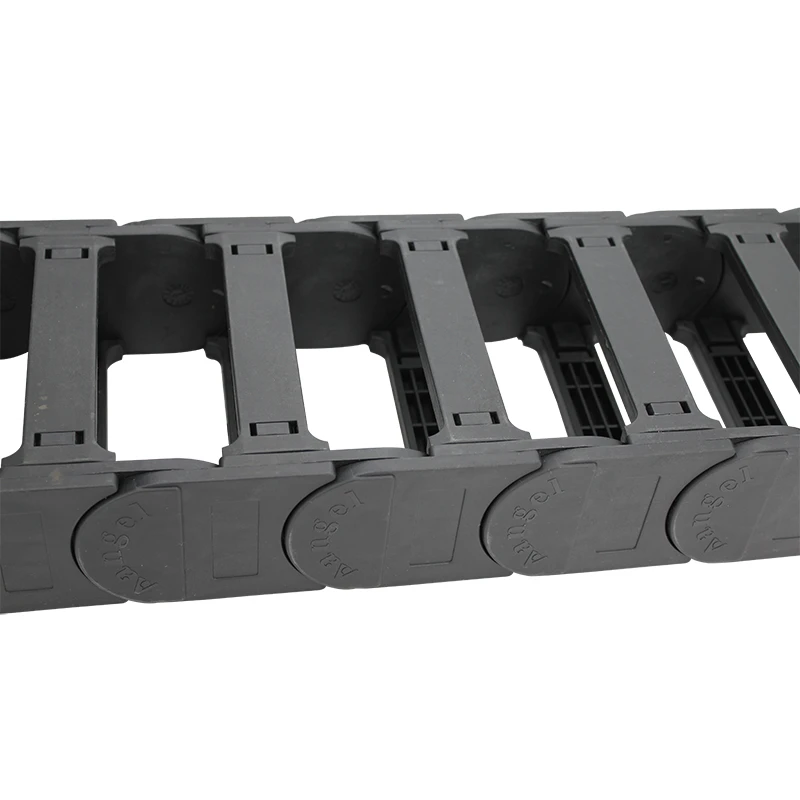Choosing the Right CNC Cable Carrier for Your Machinery Needs
Understanding CNC Cable Carriers Importance and Applications
CNC (Computer Numerical Control) machines have revolutionized the manufacturing and machining sectors by enhancing precision and efficiency. One of the key components that ensure these machines operate smoothly is the CNC cable carrier, also known as a drag chain or cable chain. This article delves into the importance of CNC cable carriers, their construction, benefits, and applications in modern machining environments.
What are CNC Cable Carriers?
CNC cable carriers are specially designed structures that house and protect cables, hoses, and other flexible components used in CNC machinery. They are essential for the organization and management of the electrical and fluid lines that power and operate these complex machines. The primary purpose of the cable carrier is to prevent tangling, abrasion, and wear of the cables while ensuring complete mobility and flexibility during operation.
Construction of Cable Carriers
CNC cable carriers come in various shapes and sizes, tailored to the specific needs of different machines. They are generally constructed from durable materials such as plastic or metal to withstand harsh working environments. The design features openings or channels that allow for easy entry and exit of cables, maintaining a tidy appearance.
The most common types of cable carriers include
1. Open Cable Carriers These have an open design that allows for easy access to the cables within. They are ideal for environments where frequent reconfiguration of cables is necessary.
2. Closed Cable Carriers These provide full protection for the cables, making them suitable for environments with high levels of dust, debris, or liquid exposure.
3. Rotating Cable Carriers These have a unique design that allows them to rotate 360 degrees, which is particularly advantageous in multi-axis CNC machines where cables need to move in multiple directions.
Benefits of Using CNC Cable Carriers
1. Enhanced Protection Cable carriers shield cables from mechanical wear and tear, preventing damage that could lead to costly downtime and repairs. They also protect cables from environmental hazards such as moisture, chemicals, and extreme temperatures.
cnc cable carrier

3. Increased Safety Properly managing cables reduces the risk of tripping hazards in the workplace. It also minimizes the chances of electrical shorts or machinery malfunctions caused by worn cables.
4. Easy Maintenance and Replacement The modular design of many cable carriers allows for quick access to individual cables, making it easier to replace or repair them without needing to dismantle entire machinery setups.
5. Aesthetic Appeal Organized cable management contributes to a cleaner and more professional appearance in workshops and production facilities.
Applications of CNC Cable Carriers
Cable carriers are indispensable in various applications across multiple industries, including
1. Manufacturing and Machining Cable carriers are widely used in CNC milling machines, lathes, plasma cutters, and laser cutting machines, where they ensure reliable movement of power and control lines.
2. Robotics In robotic arms and automation systems, cable carriers are essential for managing the numerous cables and hoses needed to operate sensors, motors, and actuators.
3. Automotive and Aerospace CNC cable carriers play a vital role in manufacturing components for vehicles and aircraft, where precision and reliability are paramount.
4. Material Handling Systems Automated conveyors and lifting systems employ cable carriers to maintain organized electrical connections, ensuring smooth operation in warehouses and distribution centers.
5. 3D Printing As 3D printers often require flexible movement of existing lines, cable carriers can be instrumental in ensuring reliable printing processes without cable interference.
Conclusion
CNC cable carriers are crucial components that contribute to the effectiveness, safety, and reliability of CNC machinery and automated systems. By providing organized cable management, enhanced protection, and increased mobility, cable carriers play a vital role in modern manufacturing processes. As technology continues to evolve, the importance of cable carriers will only increase, supporting the ever-growing demands of precision machining and automation.








